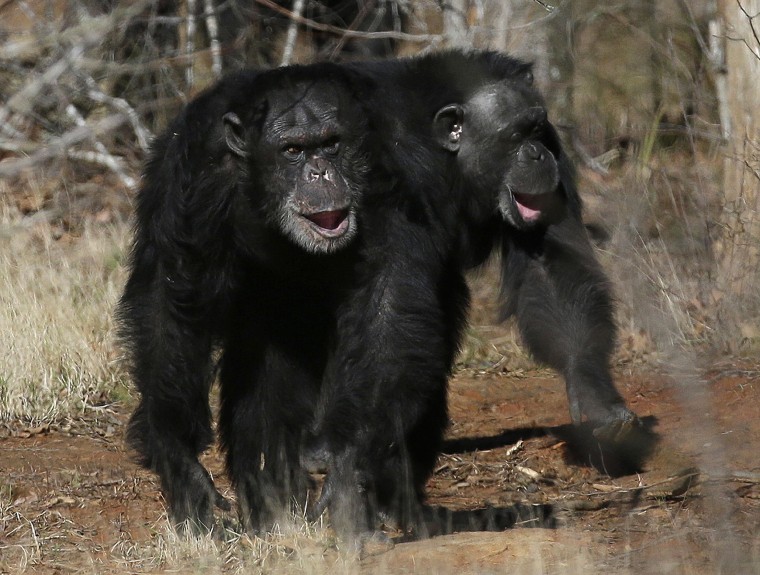A herpes virus that infects humans originated in chimpanzees before it jumped into early human ancestors, according to a new study.
Researchers found that herpes simplex virus 1 (HSV-1) infected hominids before their evolutionary split from chimpanzees 6 million years ago, whereas herpes simplex 2 (HSV-2) was transferred from ancient chimpanzees to human ancestors such as Homo erectus about 1.6 million years ago, long before the rise of early modern humans about 200,000 years ago.
Sign up for top Science news delivered direct to your inbox.
"Before we were human, there was still cross-species transmission into our evolutionary lineage," study author Joel O. Wertheim, assistant research scientist at the University of California, San Diego AntiViral Research Center, told Live Science.
About two-thirds of the human population is infected with at least one kind of herpes simplex virus, according to the researchers. HSV-1 commonly manifests itself as cold sores on the mouth or lips, whereas HSV-2 can cause blisters on the genitals.
In the study, the researchers compared human herpes viruses with those of other primates. They used advanced models of molecular evolution to estimate when and how exactly the viruses had diverged from each other, and how they were introduced into humans.
According to a previous hypothesis, HSV-1 was thought to have been introduced to humans "potentially from another ape species, like orangutans," Wertheim said. And the split between HSV-2 and its chimpanzee counterpart was thought to have coincided with the split between humans and chimpanzees.

In contrast, the new study suggests that HSV-2 is the result of cross-species transmission to humans from ancestors of modern chimpanzees, and that HSV-1 is the result of a split between the human and chimpanzee viruses, he said.
Now, humans and chimpanzees have their own version of the HSV-1 virus, Wertheim said.
He added, "Understanding how and when we acquired viruses that currently infect us can give us perspective on future, potential cross-species transmission events that would lead to the introduction of new human viruses."
- Agata Blaszczak-Boxe, Live Science
This is a condensed version of article that originally appeared on Live Science. Read the entire story here. Follow Agata Blaszczak-Boxe on Twitter. Follow Live Science @livescience, Facebook & Google+.
- Germs on the Big Screen: 11 Infectious Movies
- Top 7 Germs in Food that Make You Sick
- Top 10 Mysteries of the First Humans
Copyright 2014 LiveScience, a TechMediaNetwork company. All rights reserved. This material may not be published, broadcast, rewritten or redistributed.